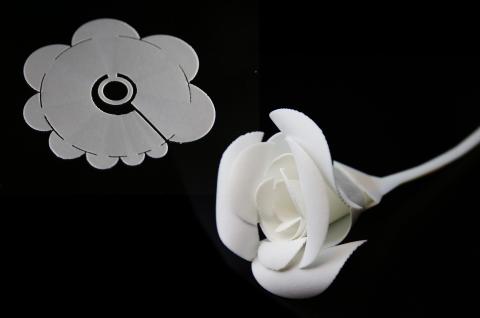Thermorph: Flat, 3D Printed Materials that Self-Fold When Heated
2018

Researchers at Carnegie Mellon University have used an inexpensive 3-D printer to produce flat plastic items that, when heated, fold themselves into predetermined shapes.
The process begins with a cheap 3-D FDM printer and takes advantage of warpage, a typically undesirable aspect of 3-D printing. Lining Yao's team controls the process by varying the speed at which the thermoplastic material is deposited and by combining warp-prone materials with other more rubber-like materials that resist contracture.
Yao, assistant professor in the Human-Computer Interaction Institute and director of the Morphing Matter Lab, said these self-folding plastic objects represent a first step toward products such as flat-pack furniture that assume their final shapes with the help of a heat gun. Other applications of the self-assembling technology are already being discussed, and include: pasta, emergency shelters, boats, and other fiberglass products.
Project Website
Thermorph
Researchers
Lining Yao

